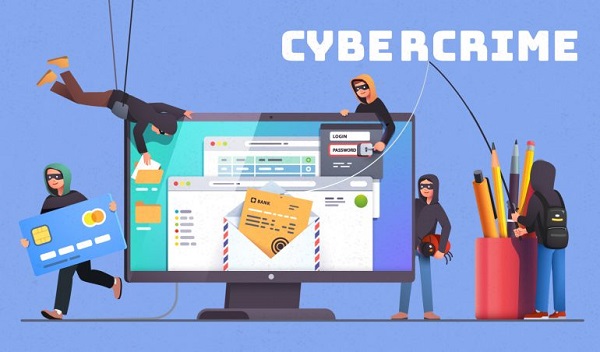A guide for parents to protect their kids from cybercrime
Tue 04 Jan 2022, 10:44:32

According to the National Crime Records Bureau, there is a 400 per cent increase in cybercrime against children in 2020 in comparison to the previous year, with a majority of them related to publishing or transmitting of material depicting children in sexually explicit acts.
Today’s children and teens are growing up in a digitally connected world. It is crucial that they learn to balance the benefits offered by technological offerings with an understanding of their own and others’ online behaviour, and then develop effective strategies for staying secure and making a positive online impact. It’s important that preteens and teens understand everything about Internet ethics and digital well-being before they navigate online.
Digital wellbeing for preteens (6 to 13 years)
* What kind of interactions are they having online?
* What kind of information are they accessing online?
* What kind of influence are they having online?
* What kind of instructions do they have?
Digital wellbeing for teens (13 to 18 years)
* Digital Security – What tools and techniques do they have when they navigate online?
* Digital Safety – Are they informed about physical and psychological well-being?
* Digital Spirit – Do they understand and confirm legal and ethical, content online?
A few dangers to consider protecting children:
* Cyberbullying means being cruel to others using technological means on mobile phones, computers, social media, messaging platforms, emails, discussion groups, and websites. Cyberbullying is widely used for teasing, making fun of, spreading rumours online, sending unwanted messages and defamation.
* Online predators – A cyber predator’s goal is to lure and manipulate a child’s belief system by posing as if they care for the child along with his or her family. An Internet predator creates a fake online profile that emotionally replaces a trusted parent or partner in a child’s mind.
* Social boundaries – Children do not yet understand social boundaries. They may post sensitive or personally identifiable information online or on their social media profiles, which is not meant to be visible in public. Speak frankly to your children and discuss public boundaries and what they mean for the family as a whole.
* Phishing – It’s a malicious attempt to steal your personal information and gain control of an online account of yours. The scammer will send you a fake email that links to a
fake login to your favourite game or provide an alike in exchange for a free game. Cybercriminals often trick children into downloading free games/software containing malicious malware.
fake login to your favourite game or provide an alike in exchange for a free game. Cybercriminals often trick children into downloading free games/software containing malicious malware.
* Social Expressions – Children and teens post photos of parties with drinking and drugs on social media. Usually, teens block their families from the photos and posts, and others just keep posting. We have seen young teens lose jobs and family relationships many times because of inappropriate posts made in the past.
Rating of Games:
* EC: Early Childhood – Ages three and older.
* E: Everyone – Ages six and older.
* T: Teen – Ages 13 and older.
* M: Mature – Ages 17 and older.
* AO : Adults Only – Above 18.
* Pictures (i) Parental Guidance (ii) Violence and (iii) Bad Language (iv) 18 Years
Game Genres:
* Puzzle: Problem Solving Skills – (Example: Rush Hour)
* Action: Physical Challenges – (Example: The Legends of Zelda)
* Strategy: Gamer(s) Decision Making Skills – (Example: StarCraft)
* Adventure: Story-based – (Example: Harry Potter’s Hogwarts Mystery)
* Arcade: Single-player Games – (Example: Space Invaders)
* Sports: Sports – (Example: EA Sports Cricket).
* Skill based: Mental Skills – (Example: Poker).
Tips for protecting children from internet dangers:
* Set time limits with Screen Time Agreements (for both smartphones and the internet). Enable parental controls for media, games, and apps. (c) Managing your child’s requests and expectations
* You can have daily / weekly reports on their activity using various apps. (a) Screen Time App – If it’s an iOS device. (b) Digital Wellbeing App – If it’s an Android device. (c) Use child monitoring apps such as Justify, Net Nanny, Teen Angles, and others to keep an eye on your children.(c) The most recommended app is “Re-Think Words”: It provides an important opportunity for adolescents to change their minds and not post hurtful messages online.
* Keep an eye on (a) adding money to your child’s bank account. (b) Removing options from payment accounts/cards associated with apps. (c) A summary of what they bought
* Manage your home network and digital parenting needs with www.justificloud.com. It is the world’s only all-in-one smart solution that works on your home router and helps to create various policies to manage screen times, bandwidth limits, content controls, no internet zones, prioritising devices for better productivity, etc.
No Comments For This Post, Be first to write a Comment.
Most viewed from General
Most viewed from World
AIMIM News
Latest Urdu News
Most Viewed
May 26, 2020
Which Cricket team will win the IPL 2025 trophy?
Latest Videos View All
Like Us
Home
About Us
Advertise With Us
All Polls
Epaper Archives
Privacy Policy
Contact Us
Download Etemaad App
© 2025 Etemaad Daily News, All Rights Reserved.










.jpg)
.jpg)
.jpg)
.jpg)
.jpg)
.jpg)
.jpg)
.jpg)
.jpg)
.jpg)


















